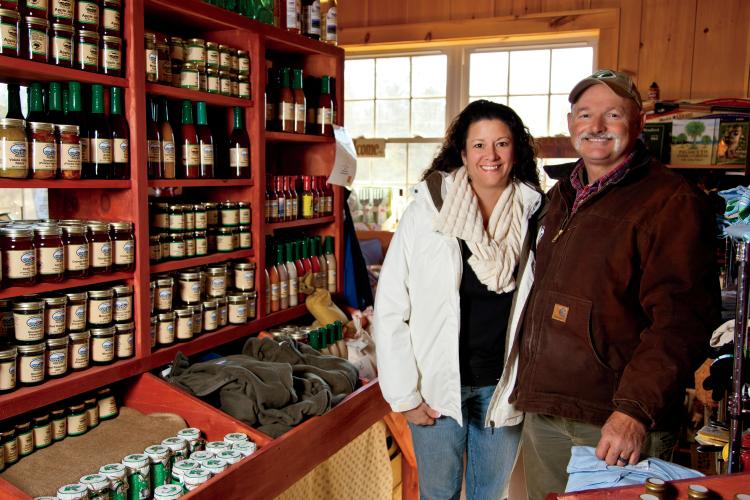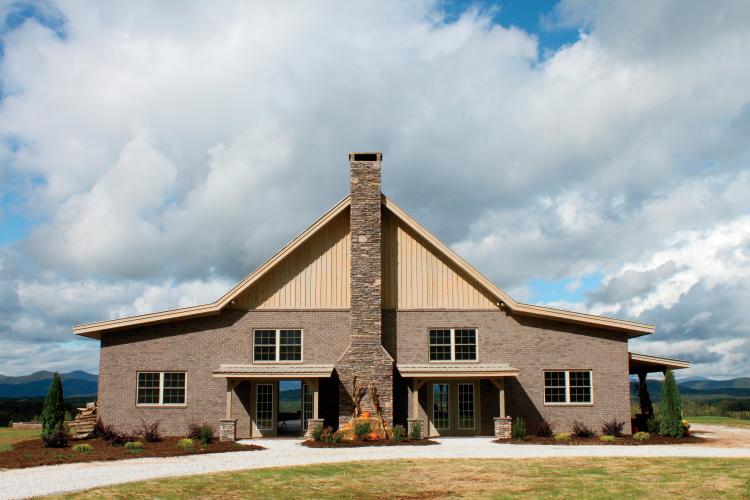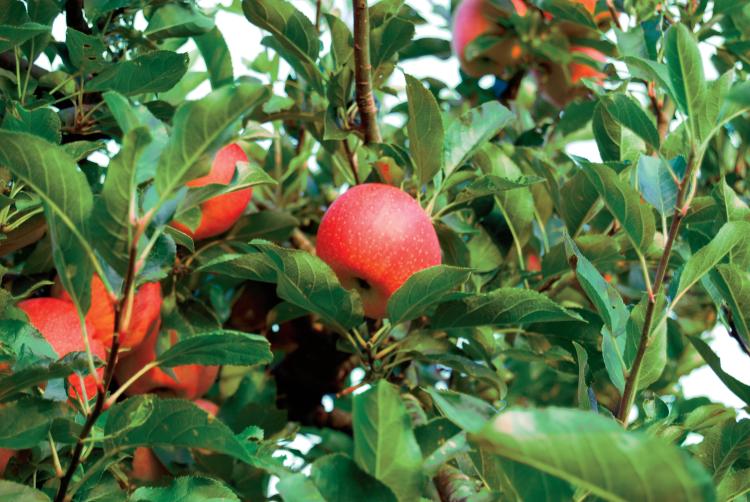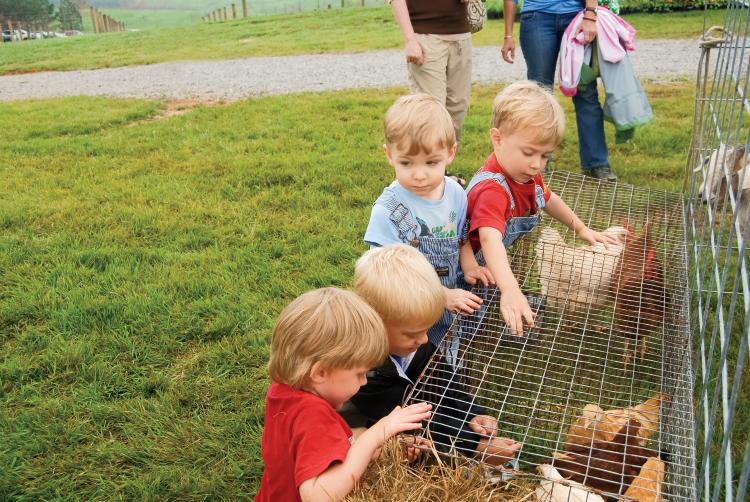Home > South Carolina > South Carolina Agritourism > South Carolina Agritourism Offers Year-Round Experiences
South Carolina Agritourism Offers Year-Round Experiences

Visitors enjoy farm-to-table dinners. An astronomy club stargazes from an observation circle. Children love the full-circle swing after a stint in the berry patch.
Chattooga Belle Farm exemplifies agritourism, a fast-growing sector of U.S. tourism that attracts people to agricultural areas. About 10,000 people annually visit the farm in northwest South Carolina, where owners Ed and Kitty Land offer a vineyard, fresh produce and on-farm experiences. Yet, the view alone takes people by surprise. The farm overlooks where the Chattooga River meets the Blue Ridge Mountains.
“I encourage anyone in the world to come to this place to visit,” says Sarah Gillespie, marketing consultant for Chattooga Belle Farm. “Once you come, you want to come back again and again.”
Throughout South Carolina, farms put storefronts on their properties and invite the public to share in local food production and the tranquility of their rural landscapes. Despite the shortage of current statistical data on agritourism, Clemson University extension specialists believe South Carolina’s sector undoubtedly has grown and evolved.
“In my experience with the New and Beginning Farmers Program, there seem to be more people interested in agritourism businesses as part of their business plans,” says Dave Lamie, associate professor at Clemson University. “Some are exclusively focused on that.”

The myriad selection of agritourism experiences presents something for everyone year-round. Corn mazes, U-pick berry farms, hayrides and petting zoos provide wholesome, outdoor family entertainment. Museums showcase agricultural history. Vineyards, gardens and farm tours are educational for any age group.
Organized events, like the annual Ag + Art Tour, generate a surge of rural traffic. The major agritourism event in 2012 attracted 2,500 visitors to 20 local farms, farmers markets and local food restaurants. The free, weekend-long, self-guided tour showcased 20 artisans with traditional arts made in York County.
“For our state in particular, because we are so rural, it’s important for people to move off the interstate and out of high-population cities to take a trip to see what South Carolina’s agriculture is about,” says Beth Crocker, staff member with the South Carolina Department of Agriculture.
Take, for instance, Boone Hall Plantation, located eight miles from downtown Charleston. Listed on the National Register of Historic Places, it remains one of America’s oldest working, living plantations with more than 320 years of crop production. Visitors learn its history of commercially grown cotton and pecans while today enjoying the farm’s fruits and vegetables. They watch live presentations and take tours of the home, crop fields, historic living quarters and gardens with roses more than a century old.

The plantation’s spectacular tree-lined drive, known as the Avenue of Oaks, takes root in visitors’ memories. Originally planted in 1743, the oak trees today form a massive, moss-draped canopy of sculptural branches about three-quarters of a mile long.
Likewise, rural beauty takes the spotlight at Chattooga Belle Farm. The vineyard and U-pick farm’s breathtaking views and sunsets provide a popular location for weddings and special events. The farm hosted 31 weddings in its hilltop event barn in 2012.
There, farm workers tend to vineyards, apple and peach orchards, exotic fruit gardens and a cattle herd. Their farm store sells muscadine wine, jams and grass-fed beef, all from the farm. Visitors can even play 18 holes of disc golf while enjoying the farm’s view, listed by a magazine as one of the best of courses.

Signs Point to Agritourism
In 2013, the South Carolina Department of Agriculture plans to launch a directional sign program in cooperation with other state departments. The uniform, metal highway signs will help visitors navigate their way to agritourism stops off rural roads throughout the state.



